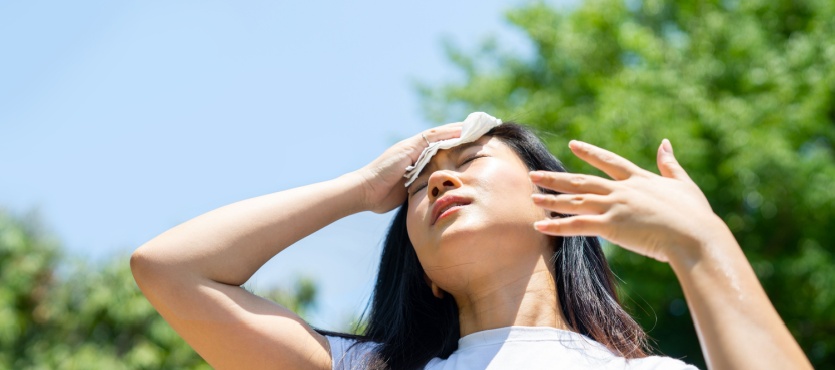Florida is known for its beautiful beaches, vibrant cities, and, during the summer months, its intense heat and humidity. While summer in Florida can be enjoyable, the high temperatures can pose serious health risks if proper precautions aren’t taken. Following these essential tips will help you stay safe and cool during the Florida summer, ensuring you can enjoy all that the Sunshine State has to offer without compromising your health.
Stay Hydrated
Staying hydrated is crucial, especially during the hot summer months. Dehydration can lead to heat exhaustion or heat stroke, both of which are serious health conditions. The high humidity in Florida can make it difficult for your body to cool down through sweating, increasing the risk of dehydration. Aim to drink at least eight glasses of water a day. If you’re engaging in outdoor activities or exercising, increase your water intake accordingly. Avoid alcohol and caffeine as both can dehydrate your body. Instead, opt for water or sports drinks that replenish electrolytes. Eating hydrating foods like watermelon, cucumbers, and oranges can also help keep you hydrated.
Dress Appropriately
Wearing the right clothing can make a significant difference in how you feel in the heat. Lightweight, loose-fitting, and light-colored clothing helps reflect heat and allows your body to breathe. Dark colors absorb more heat, while light colors reflect it. Opt for whites, pastels, and other light shades. Natural fabrics like cotton and linen are more breathable and can help keep you cool. Avoid synthetic fabrics that can trap heat and moisture. Using accessories like wide-brimmed hats and sunglasses can provide shade and protect your face and eyes from the sun’s harmful rays.
Plan Outdoor Activities Wisely
Timing your outdoor activities can help you avoid the hottest part of the day, which is between 10 a.m. and 4 p.m. Plan your outdoor activities for the early morning or late afternoon when the temperatures are cooler. Taking frequent breaks in the shade or indoors can help you cool down. Using a broad-spectrum sunscreen with at least SPF 30 is essential. Reapply it every two hours or more often if you are swimming or sweating. Whenever possible, seek out shaded areas to reduce your exposure to direct sunlight.
Keep Your Living Spaces Cool
Keeping your home cool can provide a much-needed respite from the summer heat. Simple changes can make a big difference in maintaining a comfortable indoor temperature. Fans can help circulate air, while air conditioning can lower the temperature. If you don’t have air conditioning, consider spending time in public places that do, such as libraries or malls. Blocking out the sun by closing curtains and blinds can help keep your home cooler. Use blackout curtains or shades to reduce the amount of heat that enters your home. Cooking smartly can also help; use the microwave, slow cooker, or grill outside instead of the oven to avoid heating up your home.
Recognize the Signs of Heat-Related Illnesses
Understanding and recognizing the symptoms of heat-related illnesses can help you take quick action and prevent severe health issues. Heat exhaustion symptoms include heavy sweating, weakness, cold, pale, and clammy skin, fast or weak pulse, nausea or vomiting, and fainting. Heat stroke symptoms include high body temperature (above 103°F), hot, red, dry, or moist skin, rapid and strong pulse, and possible unconsciousness. For heat exhaustion, move to a cooler location, lie down, loosen clothing, apply cool, wet cloths to as much of your body as possible, and sip water. Seek medical attention if you vomit or if symptoms worsen. For heat stroke, call 911 immediately. Move the person to a cooler environment, reduce body temperature with cool cloths or a bath, and do not give fluids.
Utilize Community Resources
Many communities offer cooling centers during extreme heat. These are public places where people can go to stay cool and hydrated. Check local listings for cooling centers on city or town websites or social media pages. Libraries, shopping malls, and community centers often provide a cool refuge during the hottest parts of the day. These resources can be particularly beneficial for those without access to air conditioning.
Beat the Heat
Summer in Florida can be both enjoyable and challenging due to the extreme heat. By staying hydrated, dressing appropriately, planning outdoor activities wisely, keeping your living spaces cool, and recognizing the signs of heat-related illnesses, you can ensure a safe and enjoyable summer. For more information on staying safe in the Florida heat, visit Camp Live Oak’s contact page and get in touch with us today.

